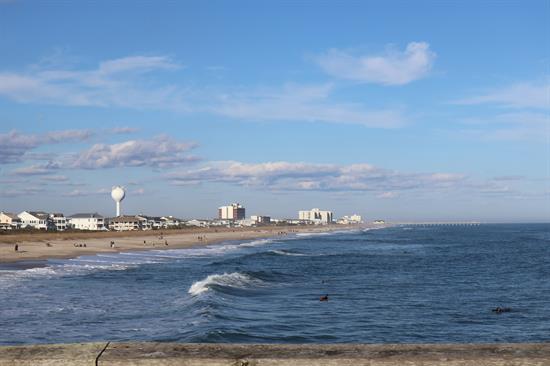WASHINGTON, DC - Today, under the leadership of Water Resources and Environment Subcommittee Chairman David Rouzer (R-NC-07), the Transportation and Infrastructure Committee approved the Water Resources Development Act (WRDA) of 2024. As Chairman of the Subcommittee, Rouzer played a key role in drafting this legislation and securing priorities specific to Southeastern North Carolina such as flood resiliency and beach renourishment projects. The package now awaits a vote in the full House.
"The Water Resources Development Act of 2024 is the culmination of months of hard work by Members of Congress, staff, and stakeholders across the country,” said Chairman Rouzer. “This bipartisan legislative package improves our nation’s ports and harbors and inland navigation networks, strengthens U.S. and international commerce, and will help improve protection of communities during national disasters. The provisions of this bill touch every aspect of our water resources across the country – including right here in Southeastern North Carolina – positively impacting the very way of life for every American. I look forward to its passage on the House Floor in the coming weeks."
With more than 1,900 requests from Members and stakeholders, WRDA 2024authorizes 159 new feasibility studies for locally proposed projects and 12 projects that have been thoroughly reviewed by the Corps and have culminated in a final report to Congress with approval by the Chief of Engineers or the Director of Civil Works.
WRDA 2024 North Carolina priorities championed by Congressman Rouzer include:
- Advancing the National Coastal Mapping Program and North Carolina Pilot Program: By authorizing the National Coastal Mapping Program, the Corps can map inland and coastal waterways nationwide to identify potential hazards leading to increased flood risk. This provision capitalizes on the authorization of the North Carolina Coastal Mapping Pilot Program, which was secured in WRDA 2022.
- Clarifying Local Use of Dredged Material Placement Sites: For years, coastal municipalities and businesses in North Carolina have dredged their canals and marinas in nearby areas referred to as “spoil sites”. Since the creation of the Atlantic Intracoastal Waterway, the Corps has had indefinite access to simultaneously use those spoil sites. However, in 2017, the Corps issued guidance effectively prohibiting nonfederal entities from disposing of dredged materials where Corps is authorized to use it—even if they have not in decades. As a result, these nonfederal entities could not access these sites despite the fact the Corps did not use them. This clarifies the ability for nonfederal entities to use these sites.
- Improving Flood Resiliency and Coastal Storm Risk Management: The authorization of three flood risk management studies in Jackeys Creek, the Northeast Cape Fear River and Black River, and Highway 53 between I-40 and Highway 50 will allow the Corps to evaluate the most feasible ways to reduce flooding in these areas. Additionally, authorizing a Bald Head Island Coastal Storm Risk Management feasibility study will allow the Corps to take the first steps toward a beach nourishment plan.
- Authorizing UNCW to Work with the U.S. Army Corps: This provision classifies the University of North Carolina Wilmington as an authorized institution of higher education eligible to conduct academic research alongside the Corps, allowing them to join efforts in studying flood mitigation, coastal resiliency, water resource ecology, water quality, aquatic ecosystem restoration, coastal restoration, and more.
- Supporting the North Carolina Environmental Infrastructure Program: By increasing this program’s authorized funding levels, the Corps can support more water infrastructure improvement projects in North Carolina such as wastewater treatment, strengthening drinking water infrastructure, environmental restoration, and improving stormwater infrastructure.
- Strengthening Local Water Infrastructure: In Robeson County, the Town of Fairmont’s water lines are believed to be as old as the 1910s, with much of the remaining material having passed its useful service life. Adding the Town of Fairmont to North Carolina’s Environmental Infrastructure Program opens the door for the Town to partner with the Corps to enhance their water main lines.
- Expediting the Surf City Coastal Storm Risk Management Project: The Town of Surf City is currently waiting on a Chief’s Report from the Corps, which will allow them to move forward with their beach nourishment plan without the Town of North Topsail Beach. A directive from Congress to expedite this report puts the Town of Surf City in a spot to seek construction authorization.
Click here for more information on WRDA.


